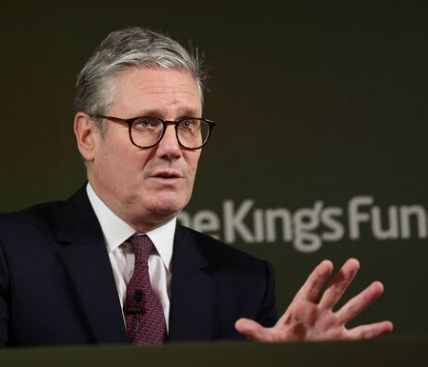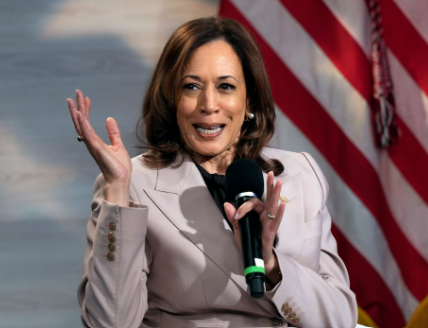Businesses are left paralysed by fears of tax hikes in Rachel Reeves’ Budget, damning figures show
Businesses have been left paralysed by fears of tax hikes, new figures show, amid growing worries that motorists and second homeowners will also be clobbered in Rachel Reeves’s Budget.
A major new survey from the British Chambers of Commerce (BCC) revealed that nearly half of firms – 48 per cent – were now concerned about taxation, overtaking inflation as their biggest headache.
It was the highest level of fear about tax expressed by business on records going back ten years, the BCC said – as business confidence drifts lower and investment stalls ahead of the Autumn Budget on 30 October.

Businesses are concerned about tax hikes in Chancellor Rachel Reeves’ forthcoming budget
BCC director general Shevaun Haviland said: ‘With speculation rife about the tax impact of this month’s crucial Budget, businesses are clearly anxious.
‘They understand the fiscal backdrop the Chancellor is facing and the need for the Government to address public finances. However, that must not be at the expense of investment and growth.’
David Bharier, head of research at the BCC, said: ‘Many businesses are increasingly anxious about the direction of economic policy, and taxation has now become their primary concern.’
The poll, conducted between August and September, revealed a sharp increase in firms worried about tax, up from 36 per cent recorded three months earlier – before the election.
Meanwhile, the Confederation of British Industry (CBI) also urged Ms Reeves not to hammer businesses – which will be needed to deliver that growth – as she looks to fill a £22 billion black hole in public finances she claims was left by the Tories.
In a letter to the Chancellor, CBI chief executive Rain Newton-Smith said: ‘We must focus on retaining competitiveness and certainty at the heart of economic policy.
‘A competitive tax regime is the shop window to attract investment.’
Separately, figures from polling firm Savanta found one in seven bosses will look at moving their headquarters overseas if the tax burden on their businesses is increased.
It is the latest evidence that firms are worrying about changes the Chancellor could impose in areas such as capital gains tax (CGT), employer national insurance contributions and pensions.
However, a raid on pensions tax relief – which could have affected six million higher rate taxpayers – has reportedly been abandoned.
That is because it would have hit up to a million teachers, nurses and other public sector workers, potentially sparking fresh industrial action just as the Government is trying to turn the page on crippling strikes.
But it could mean raids such as a hike in fuel duty – hitting more than 30million motorists – or an increase in CGT – which would hit second homeowners and shareholders – are now more likely.
Experts said it also meant that the Chancellor was more likely to turn her sights on inheritance tax.

British Chambers of Commerce (BCC) director general Shevaun Haviland said firms were ‘anxious’ amid speculation around the upcoming Budget

Rain Newton-Smith, the chief executive of the CBI, said that the Chancellor needed to ensure ‘competitive tax regime’ in order to attract investment

AA president Edmund King said that hiking fuel duty would disproportionately affect people on lower incomes and in rural areas
Hiking fuel duty could represent a double whammy for motorists already facing the prospect of higher diesel and petrol prices as conflict in the Middle East sends the price of oil above $80 a barrel.
AA President Edmund King said: ‘We have warned against increases as the current geo-political uncertainty means that pump prices are already on the increase.
‘Hiking fuel duty disproportionately hits those on low incomes or living in rural areas for whom the car is not a luxury.
‘It also increases prices on the high street as all goods are delivered to shops by road.’
Ms Reeves has already controversially announced that she is stripping around 10million pensioners of their winter fuel payments to save up to £1.4billion.
She has also scrapped an incoming cap on social care costs, aimed at preventing dementia sufferers from having to sell their homes to pay for care, to save £1.1billion a year by April 2026.
The Chancellor, who has admitted taxes will have to rise in her 30 October Budget, was understood to have been weighing up a raid on the pension savings of higher earners but according to The Times she is expected to abandon this proposal.
It quoted one senior government figure as saying it would be ‘madness’ to inflict large tax rises on public sector workers, having just given them a pay rise collectively worth more than £10billion.
Ministers are, however, understood to be looking at other potential revenue raisers from pension reform. This could include reducing the amount of money people are allowed to take out of their pension pots tax free when they retire. The limit is currently £268,275.
They may also look to overhaul rules which allow some people to pass on their remaining pension pots tax-free when they die.

The skyline of the City of London. Figures from polling firm Savanta found one in seven bosses will look at moving their headquarters overseas if the tax burden on their businesses is increased
Sir Steve Webb, a former pensions minister and partner at pension consultants LCP, said: ‘I would be very surprised if the Budget included tax changes which fell disproportionately on public sector workers.
‘Such changes could also take years to design and implement, giving maximum short-term political hostility with minimal short-term revenue gain.
‘I’m sure other areas of revenue raising will be included, not least a big increase in petrol duties, other indirect taxes and likely more money raised from capital gains tax and inheritance tax.’
A UK Government spokesman said: ‘We do not comment on speculation around tax changes outside of fiscal events.’



